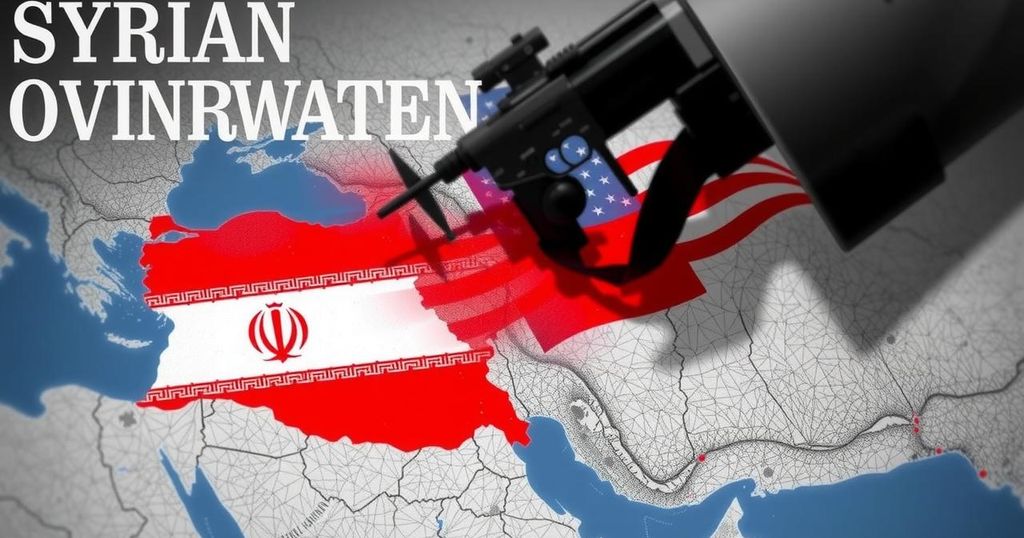Iran is withdrawing its military and diplomatic staff from Syria amid escalating threats to President Bashar al-Assad from rebel forces. This withdrawal is poised to alter the balance of power in the Middle East, potentially weakening Iran’s presence and enhancing the positions of Israel and its allies. Experts highlight the strategic significance of Syria to Iran’s regional influence and the challenges ahead.
Iran’s longstanding alliance with Syria, a partnership nurtured for over four decades, is undergoing a significant shift as Iran begins to withdraw its military and diplomatic presence from the region. This change is particularly poignant given the timing, as Syrian President Bashar al-Assad faces escalating threats from advancing rebel forces. Iran’s support has been crucial in preserving al-Assad’s rule during the ongoing civil war, which has seen Iran establish military bases and logistical infrastructure within Syria to foster its regional influence.
The recent evacuations of Iranian military leaders and personnel signal a profound retreat from their ally at a critical juncture. Analysts suggest that this withdrawal could alter the landscape of power in the Middle East, diminishing Iran’s strategic foothold and strengthening the positions of Israel and its regional partners. The ramifications of this shift extend to Iran’s intricate network of allied militia groups across the Middle East, threatening to destabilize the so-called “axis of resistance” that Iran has cultivated through Syria, Iraq, Lebanon, and other areas.
Hassan Shemshadi, an expert on Iran’s proxy militant operations, emphasized the importance of Syria to Iran, stating that “Syria has been the backbone of our regional presence.” He further underscored the challenges Iran now faces in maintaining its influence without access to the logistical pathways previously supported by Syria. The broader implications of this retreat are yet to be fully realized, but the balance of power in the region is invariably poised for transformation.
The context of this article revolves around the historical support Iran has provided to the Assad regime in Syria, particularly during the civil war that began in 2011. For years, Iran has acted as a primary ally, furnishing military resources, training, and strategic backing to help preserve Assad’s presidency. The collaboration has enabled Iran to position its military assets, including weapons and bases, in Syria, thereby enhancing its influence within the Middle East. However, recent developments indicate a significant reversal of this dynamic, reflecting the changing geopolitical landscape influenced by regional conflicts and alliances.
In summary, Iran’s withdrawal from Syria marks a pivotal moment in Middle Eastern geopolitics, with potential consequences for the stability of the region. The strategic partnership between Iran and al-Assad, once seen as a critical bulwark against external threats, is now unraveling, which may lead to a shift in power dynamics favoring Israel and its allies. As Iran retreats from its crucial role in Syria, the future of its regional influence hangs in the balance, challenging the efficacy of its longstanding alliances.
Original Source: www.nytimes.com






